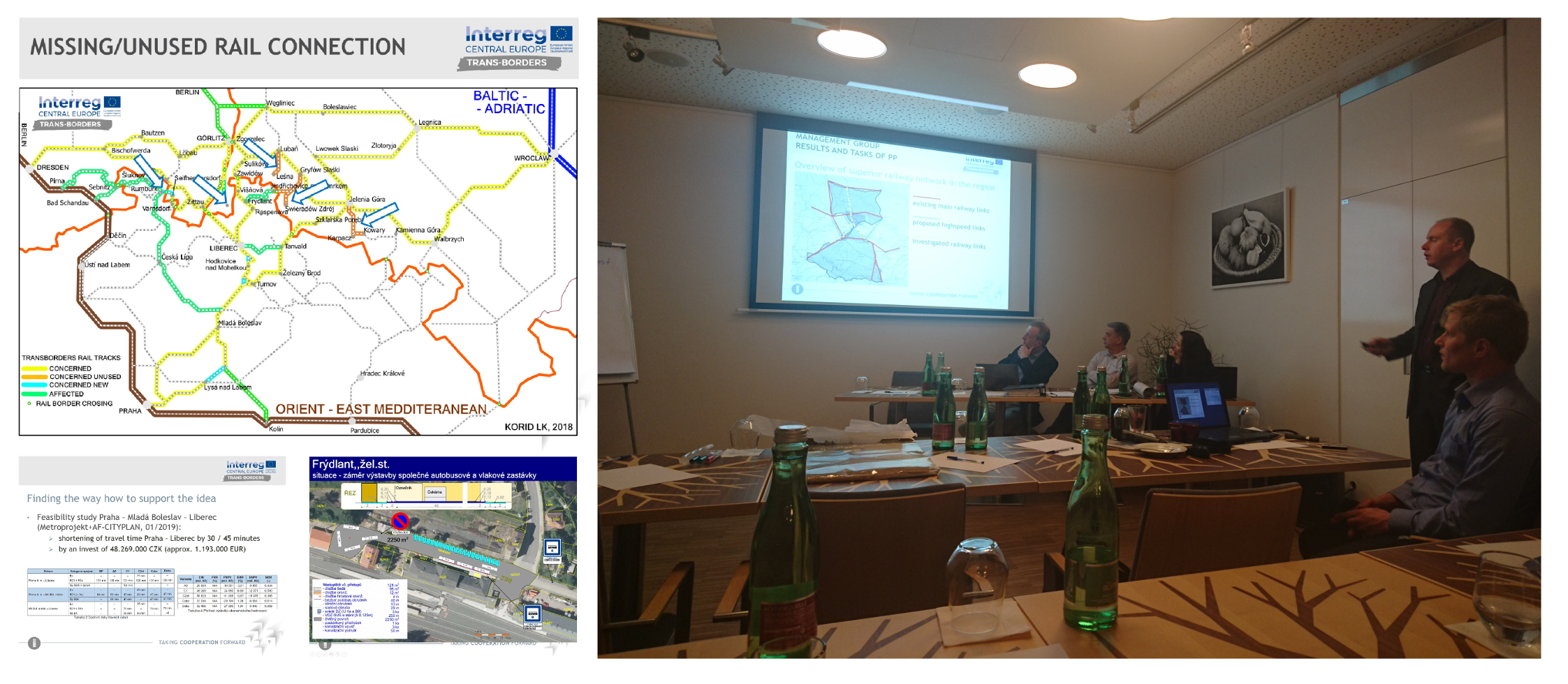Fourth Partner Meeting in Frýdlant, Czech Republic
On 09th and 10th April 2019, the TRANS-BORDERS steering committee met for the fourth time to discuss the progress of work over the last six months. The event in Frýdlant (Czech Republic) had a very special occasion: it took place under the headline of the project Mid-Term Review.

In particular, the progress of the work within the project regions was determined, now that our project has reached after the fundamental investigations an advantage stage. Now concrete measures were developed to improve cross-border passenger transport and the connection of peripheral regions far away from the main axes of the European transport network. The majority of the studies so far, for example, the regional analysis or the preparation of the Regional Action Plans, were carried out within our consortium according to uniform models. It was interesting to see what the interpretations of this look like in the individual partner regions. Interesting things issues came to light: measures previously intended were discarded and replaced by others, in other regions the analyses and first implementations revealed even more far-reaching measures.
On the first day, representatives of the partners from Carinthia, Koroska and the municipality of Bolesławiec presented explained their pilot actions and planned measures in detail:
A SWOT analysis (Strengths, Weaknesses, Opportunities and Threats) between the Austrian and Slovenian partners, for example, led to the discontinuation of efforts to extend the bus service between Klagenfurt and Ljubljana. Instead, a connection between Dravograd, Lavamünd and Wolfsberg starts with the construction of two mobility nodes. The Slovenian partners prepared a financial model and legal solutions associated with the establishment of bus lines between Slovenia and Austria.

As a key measure to strengthen public passenger transport services between the regions of Koroška in Slovenia and Carinthia in Austria, our project partners have tackled a cross-border seasonal train. Through the commitment of our project partners, the successful test operation of a cross-border seasonal train was carried out last summer. From June 2018 to September 2018, trains operated on 11 Saturdays between Maribor (Slovenia) and Bleiburg (Austria). The high popularity of the trains and the promising results are a good foundation ahead of another summer season of the Saturday cross-border train in 2019, which will operate on additional days. Our analyses have shown that cross-border connections between Carinthia and Koroška have not the only a potential in sustainable mobility for leisure time. There is as well a high potential for daily mobility.
Through the cooperation of key national and regional stakeholders, a cross-border bus in addition to the cross-border summer train will be presented this year. The busses, equipped with trailers for bicycles, will connect Lavamünd (Austria) with Velenje (Slovenia). The new established public cross-border lines thus support the Drava bike and Štrekna bicycle route.
The municipality of Bolesławiec strives to build up a Subregional Passenger Transfer Center, equipped with modern communication solutions, check-in desks with the necessary travel information equipment, parking slots and service points. It will be based around the railway station and adjacent areas, connecting various transport systems (railway, long-distance and city buses, and taxis). It will be the first one in Lower Silesia and this innovative approach is also planned to be transferable to other comparable cases on transnational level.
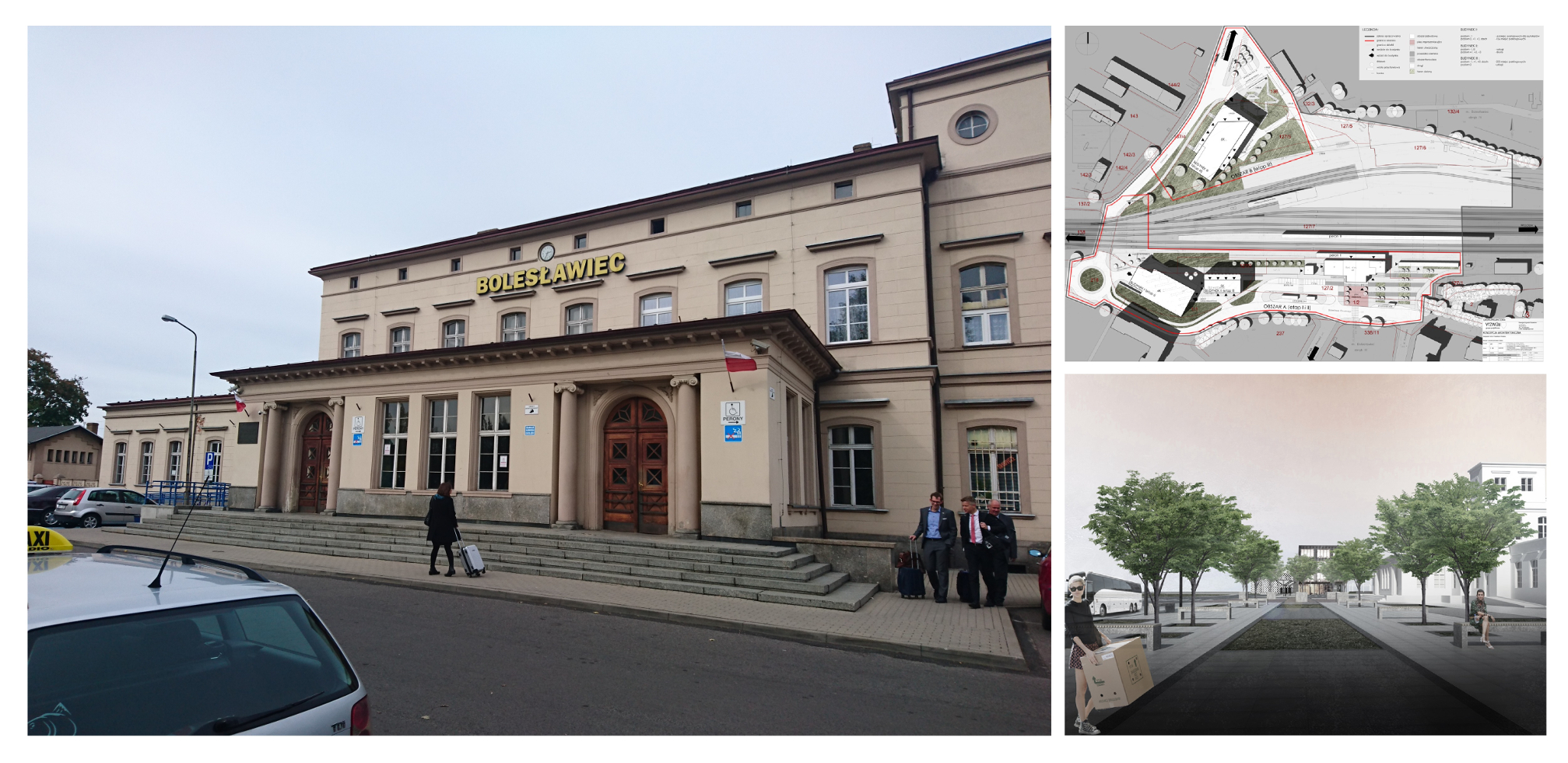
Up to now, a contract was concluded for the execution of a technical and architectural variant of a concept planning. An agreement for the preparation of design documentation for the Subregional Passenger Transfer Center in Bolesławiec was also concluded. The first stage of pre-project works was thus finished in March 2019.
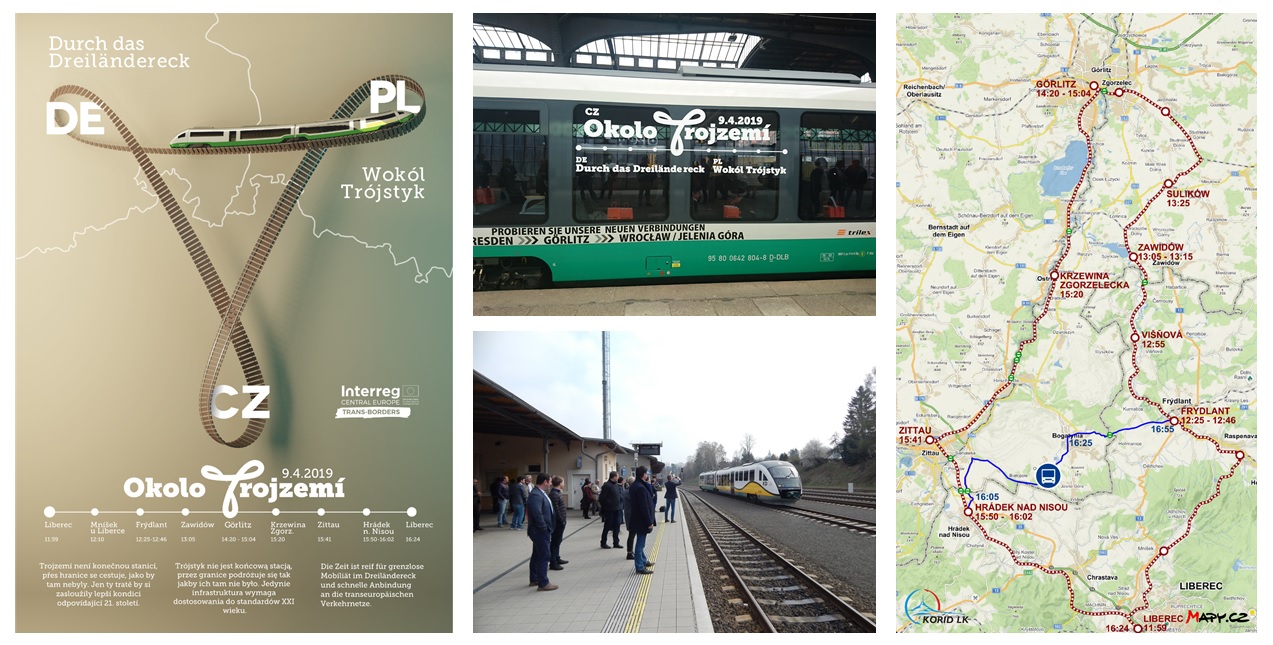
“The border triangle is not the final destination!” With this slogan, our Czech project partner KORID LK, spol.r.o., the leading public transport planning institution of the Liberec region, organized a promotional trip through the border regions of the Czech Republic, Poland and Germany during the first day of our partner meeting. The journey started in Liberec and ran via Frydlant and Zawidow to Zgorzelec and Görlitz, then via Zittau and Hradek n.N. back to Liberec. On the 199 kilometers long journey the train took stakeholders, decision-makers and representatives of the press across the three countries and crosses the border eight times.
The purpose of this promo ride was to highlight obstacles, for example in terms of rolling stock, infrastructure and legal framework, which make cross-border transport services so difficult to plan and maintain. This rail-bound round trip through the wonderful landscape of the border triangle, unfortunately, does not exist anymore. On the Czech side, trains end in the last town before the Polish border. The rails continue in principle. In the past, a long-distance connection from Berlin to Vienna used this section. On the Polish side, however, the track is only used by freight trains due to its condition up to Zgorzelec since 1991.
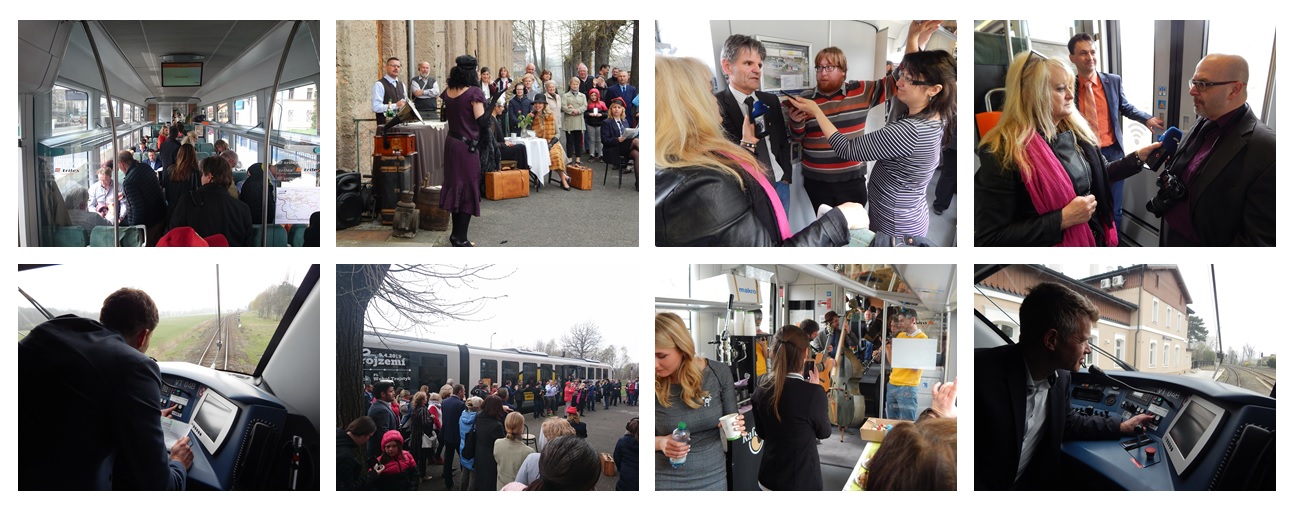
Along the route, the train stops regular, where our guests were offered a lot. In Zawidów, for example, the train was received with flags and music. It was the first passenger train, which stopped at the station after 28 years. During the following stay in Görlitz, we hold a press conference in the station building. At the press conference, the representatives of our project group and other regional politicians required to answer questions and to dialogue with representatives of the press and other interested.
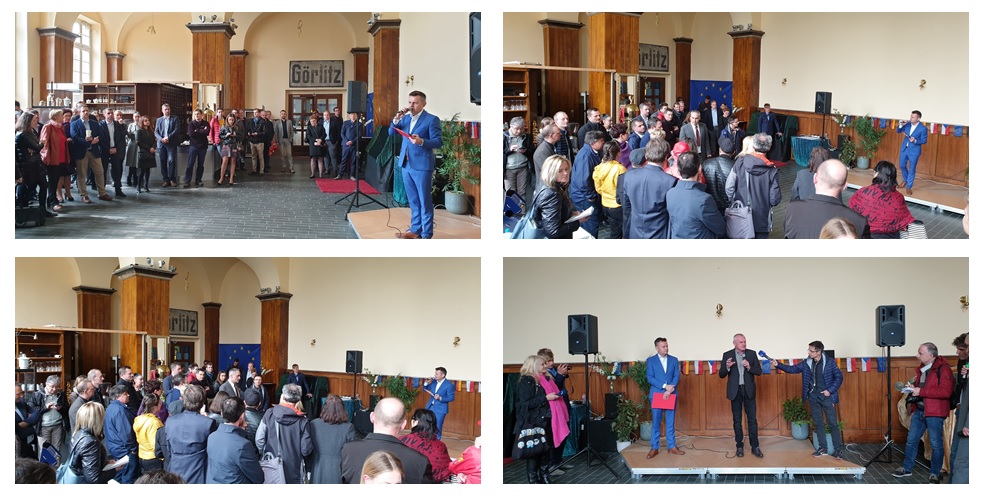
Afterwards, we made our way back to Liberec. The TRANS-BORDERS steering committee dared a little experiment. We changed to bus in Hrádek nad Nisouden and tested a planned connection from Hrádek nad Nisouden via Bogatynia to Frydlant.

On the second day of our meeting, the partners from Saxony and the Czech Republic were given space to present their project results so far. To get started the progress status of the regional action plans between the regions Saxony and Lower Silesia and Saxony and the region Liberec were presented. Both action plans consider the topics infrastructure, operation, tariff and financing, marketing and communication, legal framework and tourism. The investigation of these complexes took place on three different time horizons: short-term (1 to 3 years), medium-term (4 to 10 years) and long-term (11 to 20 years).
The analyses and first implementations revealed even more far-reaching measures in the border triangle. In particular, the studies to strengthen train connections between the Liberec region and the European city of Görlitz-Zgorzelec showed that further investigations also should consider bus transport. This especially includes ideas and concepts for the reorganization of the existing line “P” and for additional cross-border bus services in the city centre of Görlitz and Zgorzelec as well as for the connection of the Polish side with the German recreation area “Berzdorfer See”. A test service between Zgorzelec and “Berzdorfer See” during summer season 2019 (01.07.2019 to 31.08.2019) were prepared. That included the optimization of the timetable, investigation of attractive family tariff and possibilities of ticket recognition. Furthermore, for the future operation, a working group for the reorganization of the city line “P” is to establish.
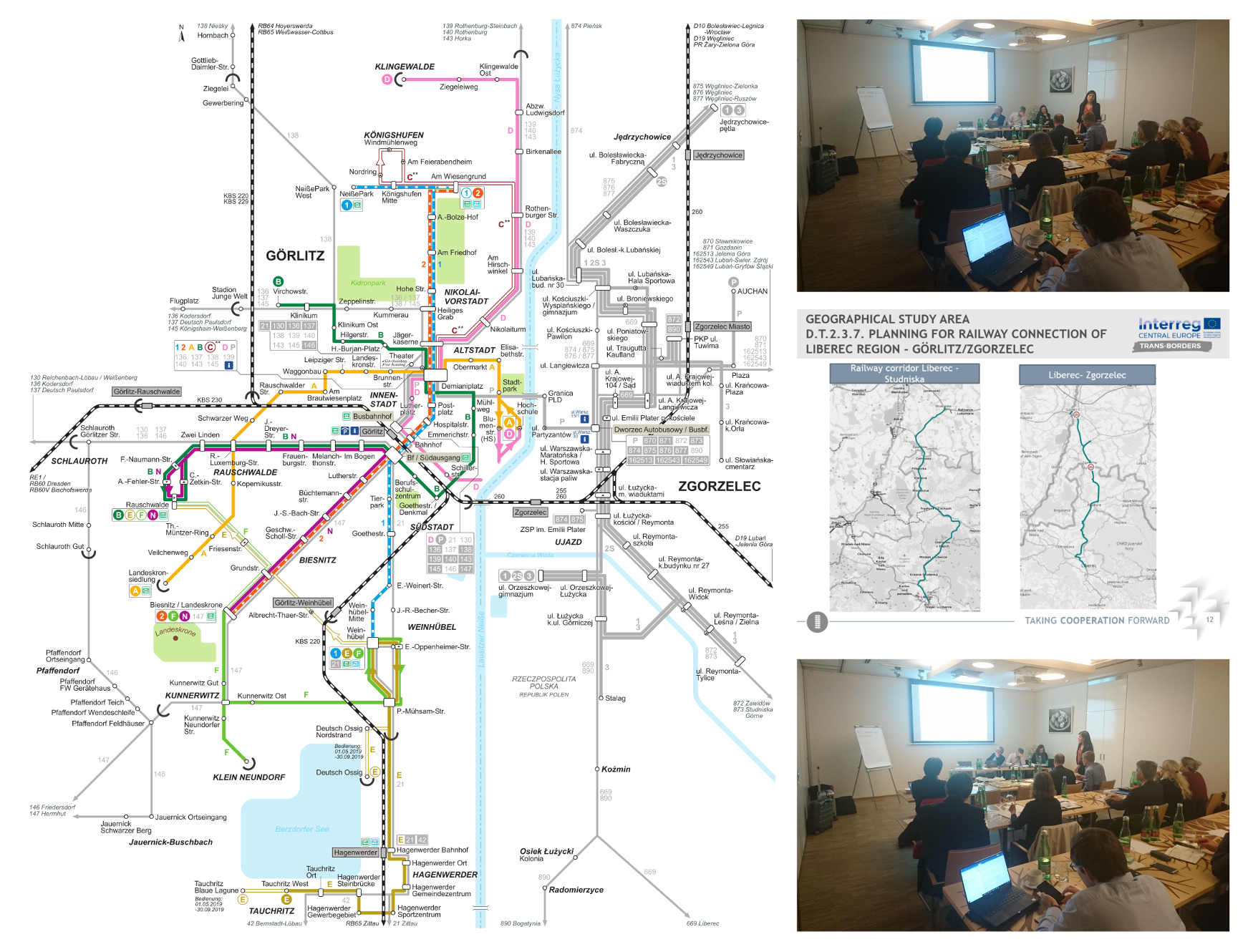
The closing word was then again up to our host. The representatives of KORID LK, spol.r.o. explained the results of the regional Action plans between the region Liberec and Lower Silesia. They made a detailed survey and description of the area of interest and a review of the up-to-date realized research. The next step was to analyze the existing transport network and the principal behaviour of passengers. All this information was then combined into an intermodal transport model “Connection Praha – Liberec – Görlitz” and measures for missing rail connection in the cross-border region of the Czech Republic, Germany and Poland were derived.
In order to strengthen the connection of the border triangle of Germany, Poland and the Czech Republic to the TEN-T core network, ideas for the establishment of a new EGTC (Poland / Germany / Czech Republic) or for the extension of the EGTC NOVUM to the west were also examined.
